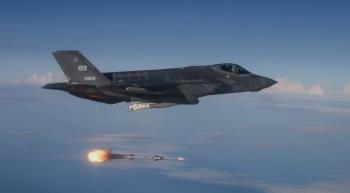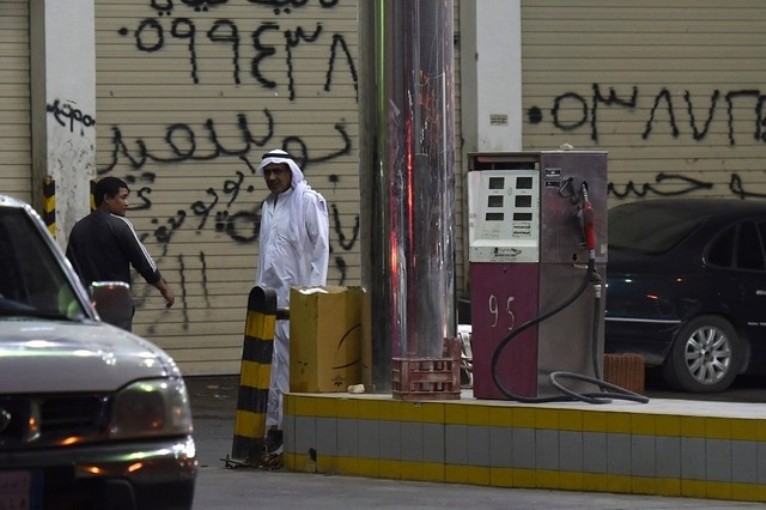Alwaght- Petrol prices in Bahrain, Saudi Arabia and some other Persian Gulf States were have been increased as part of the effort of the monarchies to boost revenues hit by slumping oil prices and involvement in regional conflicts.
The Bahraini regime’s cabinet said in a statement carried by state news agency BNA on Monday that its weekly meeting set the new price for super fuel at 160 Bahraini fils ($0.424) per litre from 100 fils, while the price for regular fuel would be raised to 125 fils per litre from 90 fils. The new prices will take effect on Tuesday.
Like other Persian Gulf oil-exporting states, Bahrain has for many years subsidized goods and services such as food, fuel, electricity and water, keeping prices ultra-low in an effort to buy loyalty for the ruling monarchy.
But since its oil income began to fall last year, the Aal Khalifa ruling regime’s budget deficit has widened and the subsidies have become much harder for Bahrain to afford.
Meanwhile the Saudi regime has revealed a series of fuel-related subsidy reforms to lower current expenditures and bolster the monarchy’s finances dented by the downturn in global oil prices and direct involvement in destabilizing regional countries including Syria and Iraq by financing terrorist groups and engaging in an endless and brutal aggression against Yemen.
The new measures imposed by the Saudi regime on the kingdom’s poor citizens include a 50 per cent increase in higher quality 95-octane petrol prices, a 66 per cent increase in lower quality 91-grade petrol prices, and a 74 per cent increase in diesel fuel prices.
Saudi Arabia is particularly vulnerable to oil price declines because oil and gas-related revenues have historically accounted for around 90 per cent of government revenues.
Experts say the recent escalation in geopolitical tensions with Iran following the fallout from the execution of a prominent Islamic scholar Sheikh Nimr Baqir alNimr in Saudi Arabia will likely add to fiscal pressures.
The warmongering Saudi regime’s 2016 budget has allocated 25 per cent of its spending on military and security services alone, much higher than the US at around 15 per cent of total government spending.
The Saudi regime has been blamed for destabilizing global oil market by pumping more crude and driving the prices to record lows.
Saudi Arabia in 2015 increased production by 1.5 million barrels per day, thus effectively destabilizing the situation on the market.
- Armenia Growing Hasty about TRIPP Corridor
- US–Qatar F 35 Negotiations Fuel Rising Israeli Anxiety
- Iran, Russia to Fast-Track North–South Transport Corridor Following Tehran Discussions
- Terrorist Attack at Checkpoint in Southeast Iran Leaves Three Policemen Martyred
- Iran Welcomes Chile’s Presidential Election Results, Signals Willingness to Deepen Relations
- Three Vessels Struck by US Forces in The Eastern Pacific; Eight Fatalities Reported
- False Flag Attack: Why Should Mossad Be Blamed for Fatal Sydney Shooting?
- Tehran Meeting Further Step to Address Afghanistan Challenges
- Troubled Louvre Museum Faces Some Grave Scenarios
- Senior Commander Praises Continuous Advancements in Iran’s Air Defense Capabilities
Editor's Choice

Is Yemen on the Verge of Split? The country is sinking in chaos as conflicting forces in the south are going separate ways and Yemenis are less involved in the fate of the south.
Beirut Assassination: Tel Aviv’s Dangerous Game and Mystery of Hezbollah Response Israel is seeking to take Hezbollah into a new confrontation, but the latter has its own calculations and game.
What’s Driven Public Trust in Resistance Factions in Iraq Vote? The Iraqis find effective forces in the resistance groups that do not restrict themselves to military sphere and have worked to stabilize national economy.
Gaza Disability Crisis: A Non-healing Wound Thousands of Gazans have suffered organ amputations, making it hard for them to engage in daily life activities.
Two Blasts Signal Deadly Game in South Asia The Pakistan and India blasts suggest that a new wave of instability is in the making, raising concerns about broader insecurity.
News

US–Qatar F 35 Negotiations Fuel Rising Israeli Anxiety
A review of the US–Qatar F 35 talksIran, Russia to Fast-Track North–South Transport Corridor Following Tehran Discussions Iran and Russia emphasized the importance of fast-tracking the implementation of the strategic North–South Corridor
Terrorist Attack at Checkpoint in Southeast Iran Leaves Three Policemen Martyred At least three Iranian police officers lost their lives in a firefight with unidentified attackers at a security checkpoint in Kerman
Iran Welcomes Chile’s Presidential Election Results, Signals Willingness to Deepen Relations The Iranian Foreign Ministry’s spokesperson congratulated Chile on the successful conduct of its presidential election
Three Vessels Struck by US Forces in The Eastern Pacific; Eight Fatalities Reported Eight killed as US military targets three suspected drug-smuggling vessels in eastern Pacific operation ordered by Secretary Pete Hegseth
Senior Commander Praises Continuous Advancements in Iran’s Air Defense Capabilities The Chief of Staff of the Iranian Armed Forces emphasized the ongoing and consistent improvement of Iran’s air defense capabilities
Iran Introduces New Nuclear Medicine Products Iran’s NSTRI has revealed three domestically developed products for diagnosing and treating diseases using nuclear medicine
US Military Aircraft Nearly Collides with Civilian Plane Near Venezuela A US military refueling plane narrowly avoided a collision with a civilian passenger aircraft off Venezuela’s coast
Russia Says It Intercepted 130 Ukrainian Drones Overnight Russia’s Defense Ministry says air defense units intercepted 130 fixed-wing Ukrainian drones overnight across multiple regions and over the Caspian Sea
Human Rights Watch Says Israel Is Blocking Reconstruction in Southern Lebanon Human Rights Watch says Israeli attacks on reconstruction machinery and civilian factories in southern Lebanon after the ceasefire breach the laws of war and amount to war crimes
Mass Shooting at Jewish Gathering in Australia Leaves 12 Dead and Dozens Injured Two gunmen opened fire at a Jewish gathering in Sydney on Sunday, killing at least 12 and injuring dozens more
Iran FM Araghchi Meets Pakistan’s Special Representative in Tehran Mohammad Sadiq, Pakistan’s special envoy on Afghanistan, held talks with Iran’s Foreign Minister Abbas Araghchi in Tehran on Sunday
Iran Opposes External Interference, Calls for Regional Cooperation on Afghanistan Iranian Foreign Minister Abbas Araghchi said externally imposed solutions and foreign decision-making cannot bring lasting stability to Afghanistan
Diplomatic Discussions Underway Concerning Iran’s Nuclear Program IAEA Director General Rafael Grossi said discussions to address Iran’s nuclear program are continuing
Palestinian Teenager Martyred in Israeli Military Raid in Northern West Bank A Palestinian teenager was killed after being shot by Israeli forces during an overnight operation in a town in the northern Israeli-occupied West Bank
Khatibzadeh: Iran-China Relations Stand Strong and Historical Iran-China relations are authentic, civilizational, and long-standing, the Deputy Foreign Minister stated
Iran, Ethiopia Expand Economic Cooperation Following BRICS Membership The Speakers of Iran and Ethiopia’s parliaments, Mohammad Bagher Ghalibaf and Tagesse Chafo, emphasized enhancing political, economic, and legislative cooperation
Southern Lebanon Hit by Israeli Airstrikes as Ceasefire Violations Persist In the latest escalation, Israeli warplanes struck targets across southern Lebanon
Israeli Forces Launch Fresh Incursion into Rural Quneitra, Syria According to a monitoring group, Israeli troops carried out a new ground incursion into a village in Syria’s Quneitra province
Ayatollah Khamenei: Iran Continues to Progress Despite Significant Challenges Ayatollah Seyyed Ali Khamenei, Leader of the Islamic Revolution, states that Iran is progressing in spite of immense shortages and difficulties
Most Viewed
Three Vessels Struck by US Forces in The Eastern Pacific; Eight Fatalities Reported
Iran Welcomes Chile’s Presidential Election Results, Signals Willingness to Deepen Relations
Armenia Growing Hasty about TRIPP Corridor
Terrorist Attack at Checkpoint in Southeast Iran Leaves Three Policemen Martyred
US–Qatar F 35 Negotiations Fuel Rising Israeli Anxiety
False Flag Attack: Why Should Mossad Be Blamed for Fatal Sydney Shooting?
Iran, Russia to Fast-Track North–South Transport Corridor Following Tehran Discussions
IRGC Forces Martyred in Southeast Iran Border Clash
Tehran Meeting Further Step to Address Afghanistan Challenges
Iran Welcomes Chile’s Presidential Election Results, Signals Willingness to Deepen Relations
Armenia Growing Hasty about TRIPP Corridor
Palestinian Teenager Martyred in Israeli Military Raid in Northern West Bank
Iran FM Araghchi Meets Pakistan’s Special Representative in Tehran
Terrorist Attack at Checkpoint in Southeast Iran Leaves Three Policemen Martyred
US–Qatar F 35 Negotiations Fuel Rising Israeli Anxiety
Honduran President Alleges Trump Engaged in ‘Election Manipulation’
Ayatollah Khamenei: Iran Continues to Progress Despite Significant Challenges
Signs of Israel Losing Its Strategic Equilibrium
Iran: World Must Act Decisively to Stop Israeli Genocide and Honor Victims
Syria a Year after al-Assad Fall
Iranian President to Tour Central Asia, Visiting Kazakhstan and Turkmenistan
Human Rights Watch Says Israel Is Blocking Reconstruction in Southern Lebanon
Iran Accuses US and EU3 of Undermining Cairo Agreement with IAEA
Israeli Strike on South Lebanon Kills One
With Multi-billion Plans Collapsing, Saudi Megaprojets Prove a Failure Story
Mystery of Gaza ’Peace Council’: An Ambiguous Mission with Dangerous Objectives
How Are Lebanese Govt.’s Incorrect Policies Emboldening Israeli Attacks on Lebanon?
UN Vote Scheduled on Gaza Stabilization Proposal Referencing Palestinian Statehood
Hamas Calls for Urgent Measures to Lift Gaza Siege Amid Escalating Humanitarian Crisis
Iran: IAEA Should Uphold Political Neutrality and Technical Professionalism
Pakistan and Taliban: From Alliance to Enmity
Russia Says Western-Backed IAEA Resolution Could Undermine Recent Progress with Iran
Israeli Airstrike Leaves 15 Dead at A Palestinian Refugee Camp in Southern Lebanon
Trump Struggles to Escape Epstein Scandal
IAEA, from Claims of Neutrality to Close Ties to Tel Aviv
Iran Open to Russia–China Mediation to Renew IAEA Cooperation
Araghchi: Caspian Sea as Vital to Iran as Persian Gulf; Russia A “Strategic Partner”
In Focus

Ansarullah
A Zaidi Shiite movement operating in Yemen. It seeks to establish a democratic government in Yemen.
Shiite
represents the second largest denomination of Islam. Shiites believe Ali (peace be upon him) to be prophet"s successor in the Caliphate.
Resistance
Axis of Resistances refers to countries and movements with common political goal, i.e., resisting against Zionist regime, America and other western powers. Iran, Syria, Hezbollah in Lebanon, and Hamas in Palestine are considered as the Axis of Resistance.
Persian Gulf Cooperation Council
A regional political u n i o n consisting of Arab states of the Persian Gulf, except for Iraq.
Taliban
Taliban is a Sunni fundamentalist movement in Afghanistan. It was founded by Mohammed Omar in 1994.
Wahhabism & Extremism
Wahhabism is an extremist pseudo-Sunni movement, which labels non-Wahhabi Muslims as apostates thus paving the way for their bloodshed.
Kurds
Kurds are an ethnic group in the Middle East, mostly inhabiting a region, which spans adjacent parts of Iran, Iraq, Syria, and Turkey. They are an Iranian people and speak the Kurdish languages, which form a subgroup of the Northwestern Iranian branch of Iranian languages.
NATO
The North Atlantic Treaty Organization is an intergovernmental military alliance based on the North Atlantic Treaty which was signed on 4 April 1949.
Islamic Awakening
Refers to a revival of the Islam throughout the world, that began in 1979 by Iranian Revolution that established an Islamic republic.
Al-Qaeda
A militant Sunni organization founded by Osama bin Laden at some point between 1988 and 1989
New node

Saudi Arabia, Bahrain Raise Domestic Fuel Prices Amid Simmering Economic Crisis













